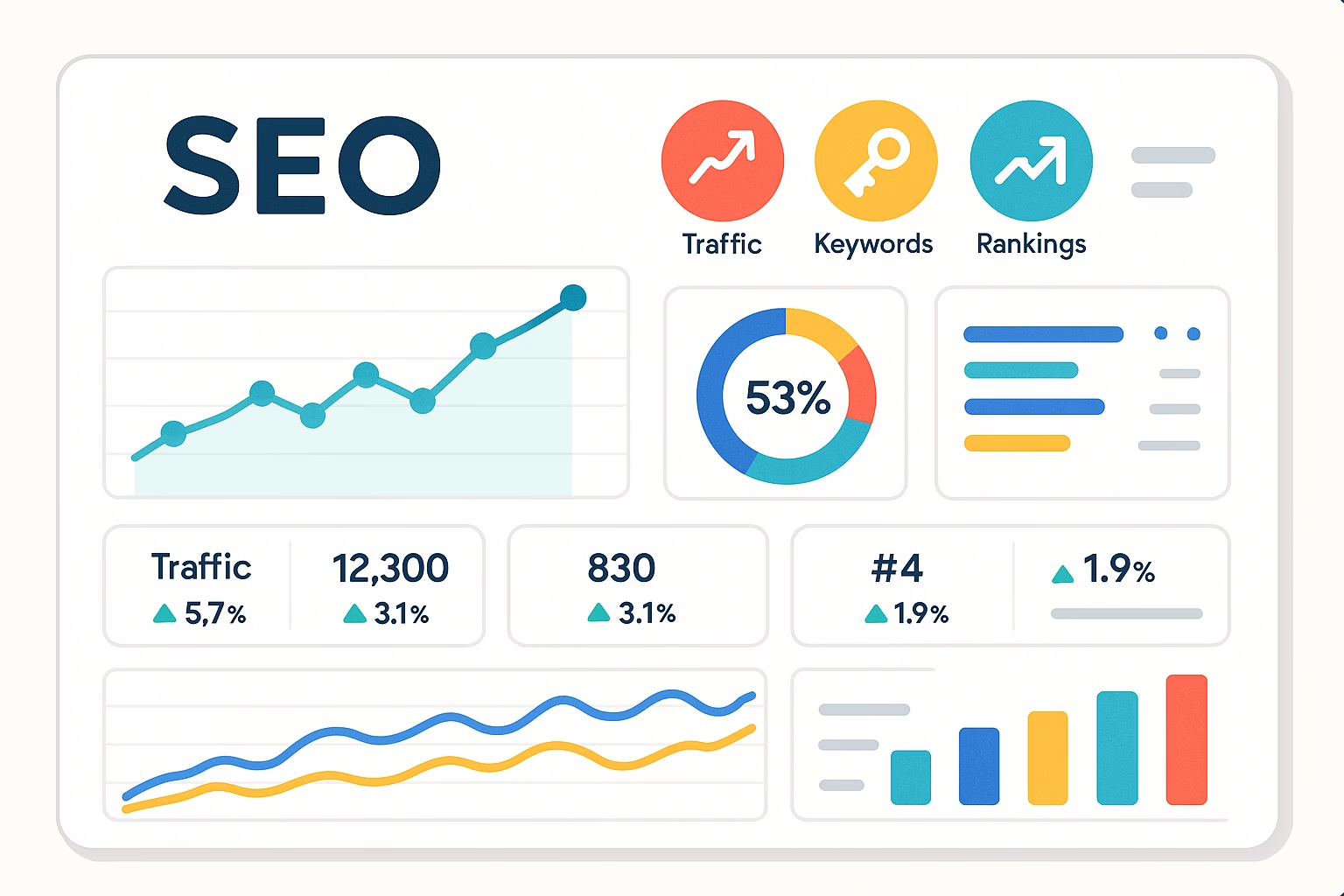Mastering Keyword Research: Tools, Strategies & Trends (2025)
Introduction
Keyword research is the foundation of effective SEO. It helps you understand what people are searching for, how often they search for it, and how competitive those terms are. In 2025, keyword research isn’t just about volume—it’s about search intent, relevance, and smart strategy. In this guide, we’ll dive deep into how to master keyword research using the best tools, techniques, and trends.
Why Keyword Research Matters
If you write content without proper keyword research, you’re essentially guessing what your audience wants. Effective keyword research:
- Helps you rank higher in search engines
- Drives targeted traffic to your blog
- Identifies content gaps and new topic ideas
- Boosts ROI for your SEO efforts
Understanding Search Intent
Search intent is the purpose behind a query. In 2025, Google’s algorithms are highly focused on matching results with user intent. Understanding the four types of search intent will help you pick the right keywords for your content:
- Informational: The user is looking for information (e.g., “what is SEO”).
- Navigational: The user wants to go to a specific site (e.g., “YouTube login”).
- Transactional: The user is ready to buy (e.g., “buy Android phone online”).
- Commercial Investigation: The user is comparing options (e.g., “best SEO tools 2025”).
Types of Keywords
Not all keywords are created equal. Here’s a breakdown of key categories you’ll work with:
- Short-Tail Keywords: One to two words; high volume, high competition (e.g., “SEO”).
- Long-Tail Keywords: 3+ words; lower volume, high intent, easier to rank (e.g., “how to do keyword research”).
- LSI Keywords: Words that are semantically related to the main keyword (e.g., for “SEO,” LSI keywords include “search engine optimization,” “Google rankings”).
- Question-Based Keywords: Used in voice search and FAQs (e.g., “how does keyword research work?”)
Top Keyword Research Tools (Free & Paid)
These tools help you discover search volumes, competition levels, keyword ideas, and trends:
- Google Keyword Planner: A classic tool, great for ad-based research.
- Ubersuggest: Offers keyword ideas, volume, competition, and SEO difficulty.
- AnswerThePublic: Ideal for finding questions people ask around a topic.
- Ahrefs: Powerful tool with advanced filters, SERP analysis, and content gaps.
- SEMrush: Includes keyword tracking, competitive analysis, and topic suggestions.
- Google Trends: Helps you track keyword interest over time.
How to Do Keyword Research (Step-by-Step)
Here’s a simplified process to guide your keyword strategy:
- Start with a seed topic (e.g., “Android apps”).
- Use a tool like Ubersuggest to find keyword variations.
- Analyze keyword metrics: volume, competition, CPC, trend.
- Group keywords by intent and theme.
- Choose a mix of short-tail and long-tail keywords.
- Use your keywords naturally in title, headings, content, and meta tags.
Keyword Placement for SEO
Once you have your keywords, you need to place them smartly:
- Title Tag: Include your main keyword as early as possible.
- Meta Description: Use primary and secondary keywords naturally.
- URL: Keep it short and keyword-rich (e.g., /keyword-research-guide).
- Headers: Place keywords in H1, H2, and even H3 tags.
- First 100 Words: Mention the main keyword early.
- Alt Text: Optimize your image descriptions.
Using Keywords in Blog Content
Keyword density is no longer the king—context is. Here are content best practices:
- Write for humans first, optimize for search engines second.
- Use variations and synonyms (LSI keywords).
- Add internal links to posts like What is SEO? Beginner’s Guide
- Answer search intent directly and clearly.
- Structure your content with bullet points and visuals.
Trends in Keyword Research for 2025
Stay ahead of the curve with these current SEO shifts:
- Voice Search: Optimize for natural language and question-based keywords.
- Search Generative Experience (SGE): AI-powered search summaries mean content must be context-rich and factually accurate.
- Topical Authority: Cover entire topics with keyword clusters and pillar pages.
- Entity-Based SEO: Focus on topics, not just keywords, to build authority.
Conclusion
Keyword research is evolving, but it remains the most important step in your SEO strategy. By understanding intent, using the right tools, and applying keywords thoughtfully, you can create content that ranks, converts, and grows your blog in 2025 and beyond.









